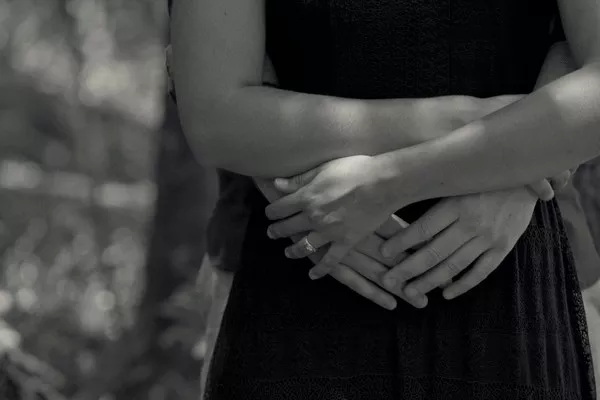Friendship is a vital part of our emotional well-being, providing companionship, support, and a sense of belonging. However, not all friendships are equal. Sometimes, one person may invest significantly more time, effort, or emotional energy than the other, leading to what is commonly referred to as a “one-sided friendship.” As a psychologist, I’ve seen many people struggle with the emotional toll that such friendships can take. Recognizing when a friendship is one-sided is essential for maintaining healthy relationships and protecting your mental health.
What Is a One-Sided Friendship?
A one-sided friendship occurs when one person feels that they are putting in more effort than the other. This imbalance can manifest in several ways—through the lack of emotional reciprocity, unequal time investment, or an imbalance in responsibilities within the friendship. In a healthy friendship, both parties should feel supported, valued, and understood. However, in a one-sided friendship, one person often feels drained, neglected, or unappreciated.
One-sided friendships can occur for various reasons. Sometimes, it’s due to differing expectations or life circumstances (e.g., one friend is going through a busy period). Other times, it reflects deeper issues such as emotional unavailability or selfishness on the part of one individual. Understanding the signs of a one-sided friendship can help you decide whether to address the issue or, in some cases, step away from the relationship altogether.
Signs of a One-Sided Friendship
1. You Initiate Most Contact
In a balanced friendship, both people make an effort to stay in touch. One of the key indicators of a one-sided friendship is when you’re the one consistently initiating contact. Whether it’s planning meet-ups, texting, or checking in on your friend’s well-being, if you find yourself being the primary initiator without receiving much effort in return, it may signal that the friendship lacks reciprocity.
It’s important to note that everyone has busy periods, and occasional lapses in communication can be normal. However, if you’re always the one reaching out and your friend rarely reciprocates, it’s worth considering whether the friendship is as meaningful to them as it is to you.
2. Your Needs Are Consistently Ignored
Friendships are about mutual support, not just in good times but also during challenges. A strong friendship involves listening to each other’s concerns and offering emotional support when needed. In a one-sided friendship, your needs may be consistently ignored or downplayed. You may find that when you try to share your struggles or express your feelings, your friend offers little empathy or shifts the conversation back to themselves.
Emotional reciprocity is a key component of any healthy relationship. If you feel that your concerns are rarely addressed, or that your friend is only interested in their own issues, this is a clear sign of an imbalance.
3. The Relationship Feels Transactional
Another common sign of a one-sided friendship is when the relationship feels transactional, as though your friend is only around when they need something from you. Whether they need help with a project, a favor, or emotional support, you may notice that they reach out only when they stand to gain something, but disappear when you need them.
Transactional friendships can feel particularly draining because they lack the emotional depth and mutual care that define true friendships. Over time, this can leave you feeling used and taken for granted.
See Also: How to Phase Out a Friendship?
4. You Make All the Effort in Plans
In a healthy friendship, both people take an active role in making plans and ensuring they spend time together. If you are always the one suggesting activities, making arrangements, or adjusting your schedule to accommodate your friend, this is a red flag. A one-sided friendship often involves one person doing the majority of the work to maintain the relationship, while the other passively benefits from it.
It’s important to feel that both people in the friendship are invested in spending time together. When one person consistently avoids or puts minimal effort into socializing, it can make the other feel undervalued and unimportant.
5. Your Friend Doesn’t Seem Interested in Your Life
Friendships are built on mutual interest and curiosity about each other’s lives. If your friend rarely asks how you’re doing, doesn’t seem to care about your personal milestones, or avoids discussing anything beyond surface-level topics, this can indicate a lack of emotional investment in the relationship. In a one-sided friendship, you may notice that conversations are often focused on your friend’s life, while your own experiences or thoughts are overlooked or dismissed.
This lack of interest can leave you feeling isolated and unimportant, as though your friend isn’t truly invested in knowing or understanding who you are as a person.
6. You Feel Drained
After Interactions Emotional exhaustion is a key sign of a one-sided friendship. If you regularly feel drained, frustrated, or even anxious after spending time with your friend, it may indicate that the relationship is not balanced. In healthy friendships, interactions should leave you feeling supported and uplifted, not depleted.
One-sided friendships often involve an emotional toll, where you are constantly giving but receiving little in return. Over time, this can lead to burnout and a sense of resentment toward the friend.
7. Your Friend Is Unavailable During Difficult Times
True friendships are tested during difficult moments. If you find that your friend is consistently unavailable when you’re going through a tough time—whether emotionally, mentally, or physically—this is a significant red flag. In a healthy relationship, friends should be there for each other, offering support and care during life’s challenges.
In a one-sided friendship, you may find that your friend avoids difficult conversations or is unwilling to offer help when you need it most. This lack of support can make you feel isolated and question the depth of the relationship.
8. The Friendship Feels One-Dimensional
In a one-sided friendship, interactions often feel limited to a particular context or activity. For example, you may only hear from your friend when they need a favor or want to go out and have fun but rarely connect on deeper emotional or intellectual levels. This can make the friendship feel one-dimensional, lacking the richness that comes from shared experiences, conversations, and emotional vulnerability.
Healthy friendships grow and evolve over time, encompassing a wide range of experiences. If your friendship feels stuck in a shallow or superficial space, it may be a sign that one person is not fully committed to its development.
Psychological Impact of One-Sided Friendships
From a psychological perspective, being in a one-sided friendship can have detrimental effects on your mental health. Over time, you may experience:
Lowered self-esteem: Constantly feeling undervalued or unimportant in a friendship can lead to self-doubt and a sense of unworthiness.
Increased stress and anxiety: The emotional strain of trying to maintain a one-sided relationship can contribute to stress and even anxiety, especially if you feel trapped or unsure of how to address the issue.
Resentment: As the imbalance continues, resentment may build toward your friend, leading to feelings of anger or frustration.
Emotional exhaustion: The constant giving without receiving can leave you feeling emotionally drained, affecting your overall mood and well-being.
What to Do About a One-Sided Friendship
If you recognize that you are in a one-sided friendship, it’s important to take steps to address the situation. Here are some strategies you can try:
Communicate openly: Have an honest conversation with your friend about how you feel. Use “I” statements to express your feelings without sounding accusatory (e.g., “I feel like I’m putting in more effort, and it makes me feel unappreciated.”).
Set boundaries: If the friendship continues to be one-sided, it may be necessary to set boundaries. This could mean limiting your availability or stepping back from the friendship to protect your emotional well-being.
Assess the value of the friendship: Reflect on whether the friendship still adds value to your life. If it doesn’t, it might be time to reconsider whether it’s worth maintaining.
Seek mutual relationships: Focus on building and nurturing relationships that are balanced and mutually supportive. Surround yourself with people who genuinely care about your well-being and are willing to invest in the friendship.
Conclusion
Recognizing a one-sided friendship can be difficult, especially if you have a long history with the person. However, it’s important to prioritize your emotional health and well-being. By paying attention to the signs of imbalance and addressing the issue through open communication or setting boundaries, you can take steps to create healthier, more fulfilling relationships. Remember, true friendship is built on mutual respect, care, and effort—anything less can leave you feeling depleted and undervalued.
Related topics:





























